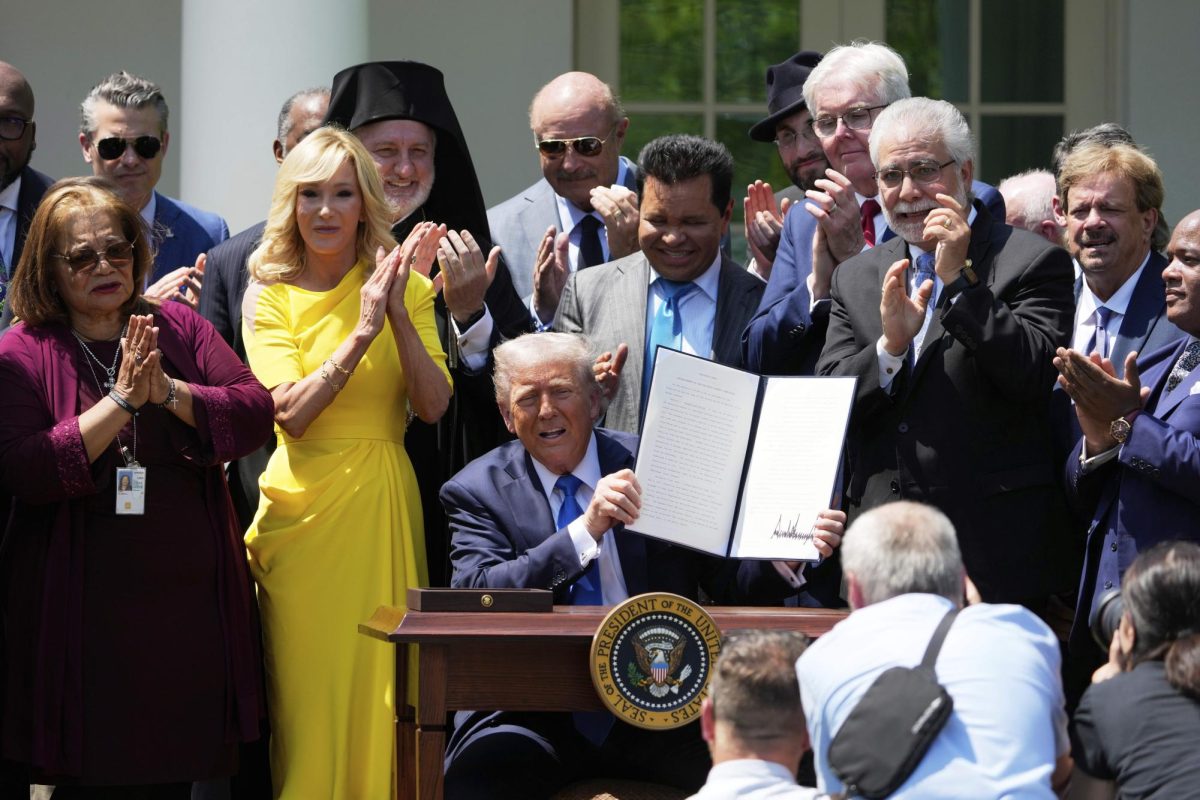‘The Post’ Prompts First Amendment Revival in “Fake News” Era
January 25, 2018
While “The Post” takes place in 1971, the parallels between then and now do not go unnoticed: the film tells the tale of courage, feminism and the importance of the first amendment.
Steven Spielberg directed this Oscar-nominated movie that released nationwide on Jan. 12, 2018. “The Post” scored nominations for Best Picture and Best Actress for Meryl Streep’s performance.
Streep delivers a wonderful enactment as Katharine Graham, the first female publisher of a major American newspaper. After Graham’s husband took his own life, her family’s company was passed on to her.
As a female in a position of that much power, Streep felt the importance of the role.
“(When Graham had to make a tough decision), that moment is going to ring so true for so many women who lived through that time when not much was expected of women outside the realm of their home,” Streep said in an interview with Entertainment Weekly.
Seeing Streep as Graham sitting in a boardroom surrounded by men doubting her every decision while still holding her head high brought feminism to the screen. Streep gave her character a realization that she, a woman, could do her father’s and husband’s job.
Tom Hanks played Ben Bradlee, the headstrong and devoted editor of The Washington Post. While he and Graham try to stay ahead of The New York Times, The Washington Post gets entangled in The New York Times Co. v. United States Supreme Court case in 1971.
The New York Times released the Pentagon Papers, top secret government documents that detailed the United States’ involvement in the Vietnam War. When The New York Times was taken to court, The Washington Post was left with the decision of whether to publish or remain silent.
Spielberg began filming “The Post” last May, a rather quick timetable, and Hanks understood the film’s political importance.
“There always is and always will be the sort of give and take and criticism of average everyday politics,” Hanks said in an interview with Entertainment Weekly. “We’re really talking about constitutional issues here. Trying to stop the publication of any newspaper is, you know, that’s taking on the First Amendment.”
“The Post” left viewers rooting for the First Amendment and freedom of the press, something Americans may take for granted while others may not have at all. Seeing The Washington Post and The New York Times fight together against a corrupt government for their constitutional right to publish was an emancipatory moment in the film and in history.
The movie ended with a 6-3 Supreme Court decision in favor of the papers. Supreme Court Justice Hugo Black wrote, “The press was to serve the governed, not the governors.”











